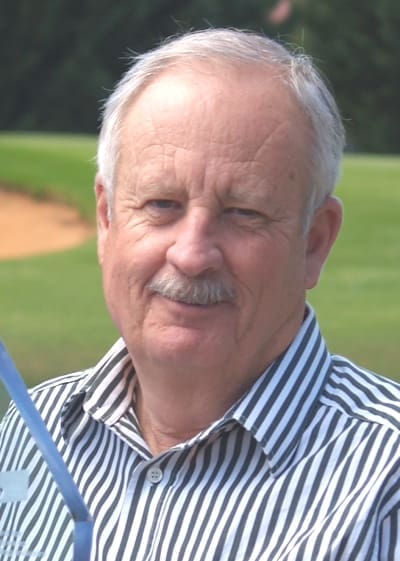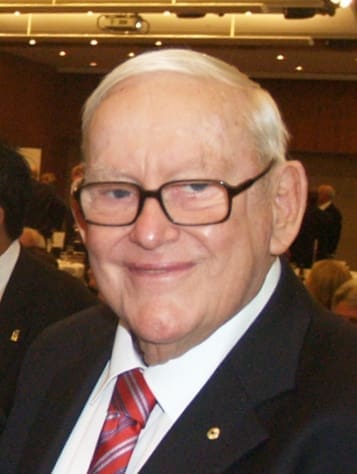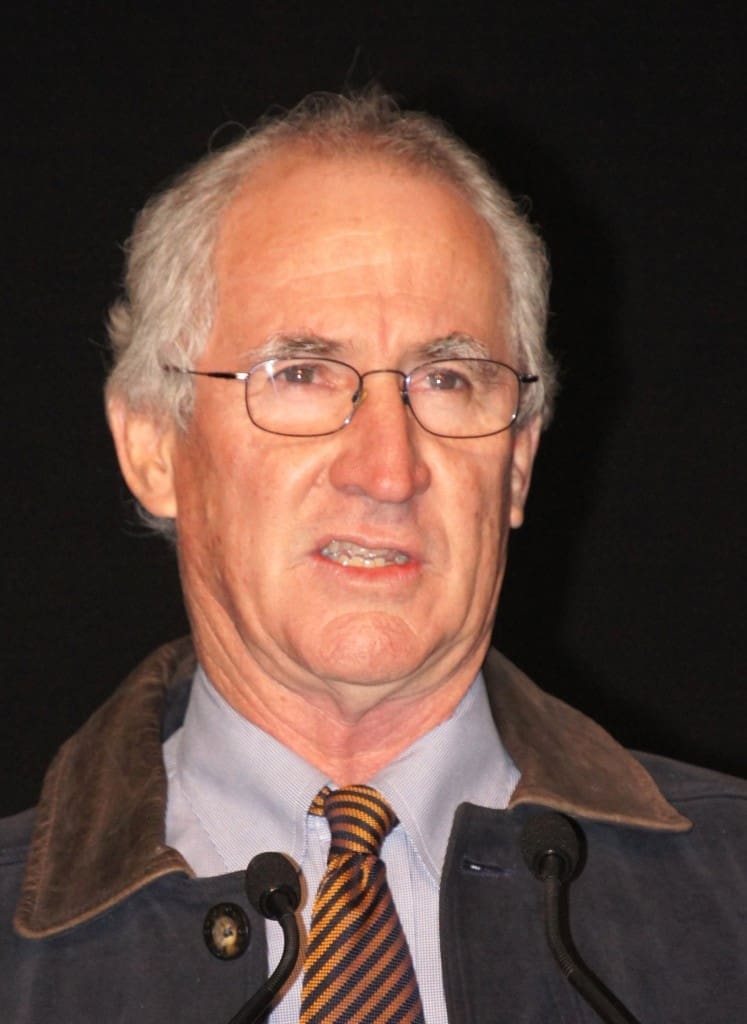Three highly-respected and influential former industry leaders* are signatories to this opinion piece, which argues against radical industry restructure.
THE recommendations arising from the recent senate committee inquiry into grassfed levies demonstrate a complete misunderstanding of the issues surrounding grassfed cattle producers’ dissatisfaction with their level of influence on the current industry structure.
It appears that only Senator Ian Macdonald, in his dissenting report, was able to separate the facts from the hysteria.
Recommendation 1 from the report calls for the establishment of a producer-owned body to receive and disperse the R&D and marketing components of the current levy, together with the matching government R&D funds.
The producing sector of the industry already has such a body and it is called Meat & Livestock Australia.
The decision to have only one service provider for the producing sector was a very deliberate one aimed at saving costs. If the producing sector has two bodies both taking their overhead costs out of the transaction levies, there will be far less money available for any effective marketing and R&D.
For Cattle Council of Australia to accept this recommendation and offer itself to be the newly formed body, shows a complete ignorance of what is likely to be involved in setting up and running such an organisation, and in our view, is merely a grab for levy funds to replace the dwindling membership fees being paid by State Farming Organisations.
The current structure places the responsibility for directing levy expenditure in the hands of the peak councils.
In return, they each receive a share of the interest income from the meat industry reserve fund to allow them to carrying out these functions.
Any criticism therefore, of how funds are spent by MLA and the other service providers bodies, Animal Health Australia, National Residue Survey, Cattle Disease Contingency Fund, Livecorp and Australian Meat Processing Corporation should be directed at those peak councils responsible for providing that strategic direction, not to the service provider bodies that are following their directions.
In terms of grassfed transaction levies, that responsibility was given to and accepted by Cattle Council of Australia, in the memorandum of understanding signed by all peak councils and the federal government.
Any perceived lack of influence by grassfed cattle producers on how their levies are spent lies entirely with the current membership structure of CCA, and this peak council’s inability to carry out its commitments under the MOU.
No other peak council appears to be receiving such criticism from the levy payers it is charged to represent, so we should not be blaming the industry structure for the problems in just one sector.
CCA claims that it has insufficient funding to carry out these responsibilities, yet it is receiving the second largest percentage allocation from the reserve fund, amounting to some $583,000 in 2012/13.
In addition to this, it is indirectly receiving levy funds of some $502,000 from the very companies it is supposed to be directing and monitoring.
In our view, this is a direct conflict of interest and takes us back to the days when the AMLC funded peak councils directly. This gave the AMLC tremendous power over industry affairs and the resulting dissatisfaction from virtually every industry sector led to the last restructure in 1998.
In our view, peak councils seeking levy funding to carry out their roles and responsibilities is just plain wrong, as it disconnects them from the very levy payers they are supposed to be representing. In this situation, levy payers will have no direct recourse if they are dissatisfied with the peak councils’ performance.
To be truly accountable, peak councils need to be funded by direct membership fees and earnings from services they provide to their members.
The boards of the councils need to be made up of directly-elected representatives of the levy payers, with regular elections so that levy payers can stand for election and remove directors, who in their opinion, are not performing.
In this way, peak councils will receive direct and continual performance assessment by the fees they receive.
On the other hand, the boards of the service-provider bodies need to be made up of individuals who are skilled in the particular activities of that company – for example marketing, R&D, animal health and corporate governance.
A good understanding of the industry sectors they are servicing is important, but it is the individual peak council that should be providing most of this sector-specific expertise.
Challenge to CCA
The challenge for CCA is to stop trying to take the easy path of accessing levies for its funding and take the harder, but more accountable route of direct membership so that it can be truly represent grassfed levy payers.
The last industry restructure cost the red meat industry nearly $40 million from industry reserves and the industry will have no reserves left if we go through another such exercise.
In its grab for levy funding, CCA is putting at risk the future of MLA and AHA, and the very important functions that these organisations perform for all levy payers – not just grassfed producers.
We see damage already starting with the high degree of uncertainty purveying industry organisations and opportunists with no ability or desire to see past their own vested interests, looking to capitalise on the unrest.
One final comment on the Senate committee Recommendation Number 5, that RMAC be dissolved.
Our industry has a diverse range of players and getting agreement on all issues is wishful thinking. However, having a forum such as RMAC, where the leaders of the various industry sectors can discuss the issues of the day and attempt to achieve consensus is invaluable.
The current structure of RMAC with an independent chairman and CEO has improved the way the council functions, and the industry has been able to provide clear consensus direction to government on many important issues.
Dissolving RMAC would simply hand the responsibility for decisions on important industry issues to government. We would doubt that any serious industry player would be in favour of this option.
We urge Minister Joyce to reject the Senate committee’s recommendations and leave control of the industry in its own hands.
* Malcolm Foster – Past President of the Australian Lot Feeders Association
* Ian McIvor – Past Chairman of the Australian Live Exporters Council
* Don Heatley – Past Chairman of Meat & Livestock Australia




For the record Tim McHugh, the Cormo Levy cost ‘livestock exporters’
$ 11.75 million – it was repaid by them and them only to the Government. It did not cost the tax payer or producer one cent.
As for your disparaging comment about Industry Leadership – many sectors of the Red Meat Industry have had outstanding leadership over the years and those that have stepped up to the plate have done so under a democratic process (levy payer have ‘elected’ them).
These people in many instances have contributed enormously in time and personal sacrifice to an Industry they passionately believe in and want to prosper. Often this commitment is to the detriment of their own business affairs.
People who choose to do this should be encouraged and supported not criticized. You might like to try it one day if others think you have the goods.
I would like to congratulate John Carpenter on his common sense approach to saving our livestock industry ! I would like to remind Don Heatly of our telephone conversation some years ago when he told me about the Cormo Express debacle. He told me that he and David Crombie (supposedly the two most influential Agri Chairpersons at the time) were in a restaurant in Sydney at the time of this debacle when a government vet returned their call to discuss changing the export paperwork so the sheep could be on sold to Lebanon with no cost to the Australian taxpayers but he refused to do it! Don said that he and Crombie went out onto the footpath and pleaded with this public servant to do as they requested but he would not listen to them. Subsequently it cost the taxpayers $13M :-(so where was our power and influence ? One thing that we have never had in the livestock Industry is great leadership 🙁 We need someone like Andrew Forrest to step in and provide his power and leadership to drag us out of this mess !!
If you are interested in solutions,Mr.Nicholas,please read my submission to the Senate Enquiry (submission number 5 ) wherein I articulate a solution to deal with the failure and injustice of the beef industry structure.
Ed – All submissions to the Senate Inquiry can be viewed at this link: http://www.aph.gov.au/Parliamentary_Business/Committees/Senate/Rural_and_Regional_Affairs_and_Transport/Beef_levies/Submissions
first, john carpenter big winge no solutions
now lets look at the big picture
there are a large no of cattlemen who are not members of any agri political organisation ( state or federal) but get the advantages that these organisations bring.
we all have to pay the $5 levy so it would be a lot fairer if a small percentage of this was used to run these organisations
the three industry leaders don’t explain how CCA are going to be funded when the SFO’s pay less.They say we need direct membership of the peak council but that doesn’t help the funding much and I don’t think the direct membership will be significant anyway.
Following this debate and reading several very good articles recently questioning the Senate Outcomes, I welcome todays article by respected Industry stalwarts (Foster, McIvor & Heatley). What a great representation of thoughts and facts from across important sectors of Industry all questioning the future of a new cattle industry body when largely the existing model with some tweeking could deliver against many of the calls being made by the levy payers.
The transition of the Australian Meat Board in 1977 to the Australian Meat & Livestock Corporation and the subsequent evolution into Meat & Livestock Australia in 1998 have all been at the behest of growers and industry in the effort to have the best possible organization providing strategic direction for the key charters of MLA – marketing and research.
I implore all of Industry to rationally consider what is on the table over this debate. Take out the secular self interest and for whole of industry to make the most of an opportunity to review what we have as a working model now, and that one with the right input can be further improved again without risk of significant cost and collateral damage.
Let’s take a look at some of these extravagant adjectives.FIRST”,’highly respected”,by whom and for what?Surely not the live export trade to Indonesia and the obscene animal cruelty that resulted in an export ban which crippled so many producers.How about the NLIS white elephant that cost producers so much and delivered nothing not even birth to slaughter traceability for about a third of the national herd.What about the lowest real cattle prices in decades and a miserable, pathetic 26.5% producer share of the retail beef dollar compared to 49.4% in the US.How about embarking on MSA a major systems development which has cost $200 million without having at least one leading processor and supermarket (i.e. COLES OR WOOLWORTHS) on board as an enthusiastic trial user.Only Steve Jobs was able to get away with this and none of these “industry leaders” are a Jobs. SECOND,”influential”.Maybe once but not anymore.The Minister is far too well informed and up the curve to fall for this one.He ordered the Senate enquiry and all the submissions are on the public record.The consensus for radical change is overwhelming.THIRD,”Former”.Finally an adjective we can agree with.They should take the advise of former PM John Major on loosing the UK election to Blair; “When the play is over the actors should leave the stage”.Fellas you’ve had your 5 minutes in the sun and cattle producers are very,very unhappy.Time to try something new and quite frankly the more radical the better. Do you really think cattle producers are going to keep on subsidising your beloved “industry structure” as they edge ever closer to financial oblivion?The party is well and truly over.I do not agree with a single word in this “opinion piece” except the last 9 words which are “leave control of the industry in its own hands”.And that is exactly what the Senate has recommended that grass fed producers be able to democratically elect their own representatives.My apologies to readers for being so long winded.
well said and true, except for the comment that the last restructure cost $40 million. It actually only cost $1.15 million , but the reserves is what they may be referring to and which were transferred into the new trust fund, the interest of which is partly used to fund peak councils, as mentioned. In fact I remember it being more like 57 million but that fund took two big hits with firstly the share market collapse and then the GFC. It was a matter of determined lobby from CCA to Government that this transfer to a trust fund occurred as technically it should have been transferred direct to treasury it having been raised by statutory levy.
Spoke like people who have been in the tent and don’t want change after all they didn’t change anything. What exactly is CCA doing we have all this MOU but no idea what is in it I would suggest from what I have read MLA gives money to CCA to monitor MLA who would do that and why???? AMPC why are they there they do not have any responsibility to the levy payers as I have said before these guys should have their own body, any work to improve processing does not add anything to farm gate returns similarly marketing the money stops at the processor that is why all this either currently of with new structures hasn’t a hope in hell of helping farm gate returns. The only impact on farm gate returns is supply, none of the above leaders can fix that but its nice for the ego.
Very well said from three very wise men. Surely this common sense will prevail. Very few know as much as these on matters red meat, individually, let alone collectively.
Spot on. About time someone said it.
This is the first bit of clear thinking and common sense applied to the so called industry restructure debate that I have read in long time.